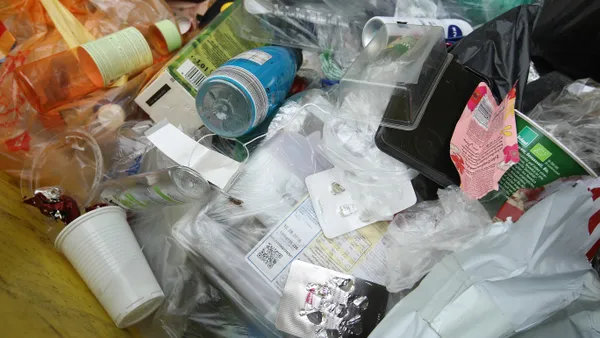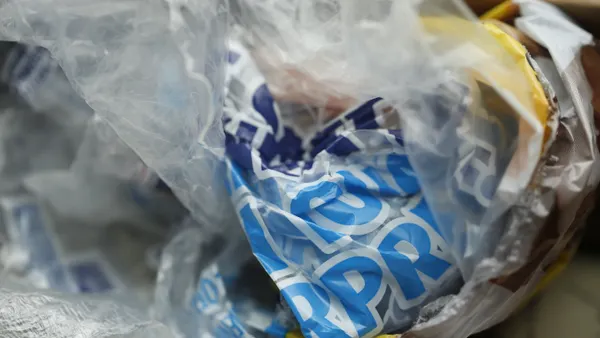Last week, Waste Dive published an opinion piece entitled "A broken link in the circular economy," in which author Scott Sherman outlined his concerns over a perceived rise in interest in new "waste-to-energy" facilities amid changes in recycling markets.
Waste Dive received a range of feedback and has decided to share two responses. We welcome any responses to this or other stories at waste.dive.editors@industrydive.com.
The article by "ex-EPA" Scott Sherman in Waste Dive against WTE is on par with people who still maintain there is no such thing as global warming. Sherman disregards the fact that, despite all efforts and goodwill, previous research has shown that less than 30% of U.S. MSW is recycled and composted. The other 70% must go to either landfills or WTE power plants. The U.S. is behind other developed countries — and is getting behind the emerging China — because people like Sherman sidestep the problem of what is best to do with the inevitable post-recycling waste: WTE or landfilling?
Other developed countries have figured this out, as have nearly 500 U.S. communities who over the years have opted for spending a few more dollars on waste management by sending their post-recycling wastes to WTE power plants. By the way, the cost of replacing the age-old practice of landfilling by modern WTE technology (and, among other benefits, decreasing greenhouse gas emissions) is less than $40 per person in a country where the per capita GDP is $60,000.
Nickolas Themelis is a senior scientist and professor emeritus at Columbia University's Earth Engineering Center. He is also chair of the Global WTERT Council.
If one would adhere to the statements Scott Sherman made in his article — and it seems to be hitting on a specific sentiment in the U.S. — it is no wonder that many municipalities are continuing to follow ill concepts or misperceived principles that lead to high amounts of waste being landfilled.
There are some major differences between landfilling and WTE. Let's be clear, despite lobbying efforts to make them seem equal, landfilling is still the least sustainable and the very last thing you want to do when striving for a circular economy, period.
It is also important to recognize that there are major differences between incineration (1970s and earlier) and modern state-of-the-art thermal treatment processes — such as minimization of emissions, maximization of energy and recovery of materials such as metals, glass aggregate, etc. that would otherwise be lost in landfills.
Landfills should be the number one enemy of "zero waste" movements, environmental advocates and circular economic advocates. As landfills continue to operate, filling up with untreated municipal waste and more, "zero waste" and circular economic objectives will continue to be unachievable because landfilling is just too cheap.
There is a reason 27 countries in Europe agreed phasing out landfilling is pivotal in moving to protect citizens from the environmental effects of this least sustainable practice. These black boxes (landfills) are ticking time bombs, and the facts are clear: phasing them out will result in higher recycling rates, higher avoidance efforts and less environmental impact from waste.
What is needed is an integrated waste management system that focuses on local recycling and recovery, versus a system of landfills and exporting of "recyclables" that are too contaminated to be of any use. That would also mean cities have to depart from the "single bin" recycling system, which was a bad idea from the start — nothing is more effective than separation versus commingling at the curbside.
To date, there is no better way to treat the organic toxins in waste than advanced thermal treatment based on the mass burn concept.
Philipp Schmidt-Pathmann, MBA, MIS is a waste management consultant and strategist based in Washington. He and his team of international experts focus on integrated sustainable waste management systems ranging from "zero waste," recycling, organics, thermal treatment technologies, landfilling, sewage, material and resource management, environmental and economic impacts to ocean cleanup. As part of their work, they have studied and analyzed the U.S. waste management system for more than two decades.









